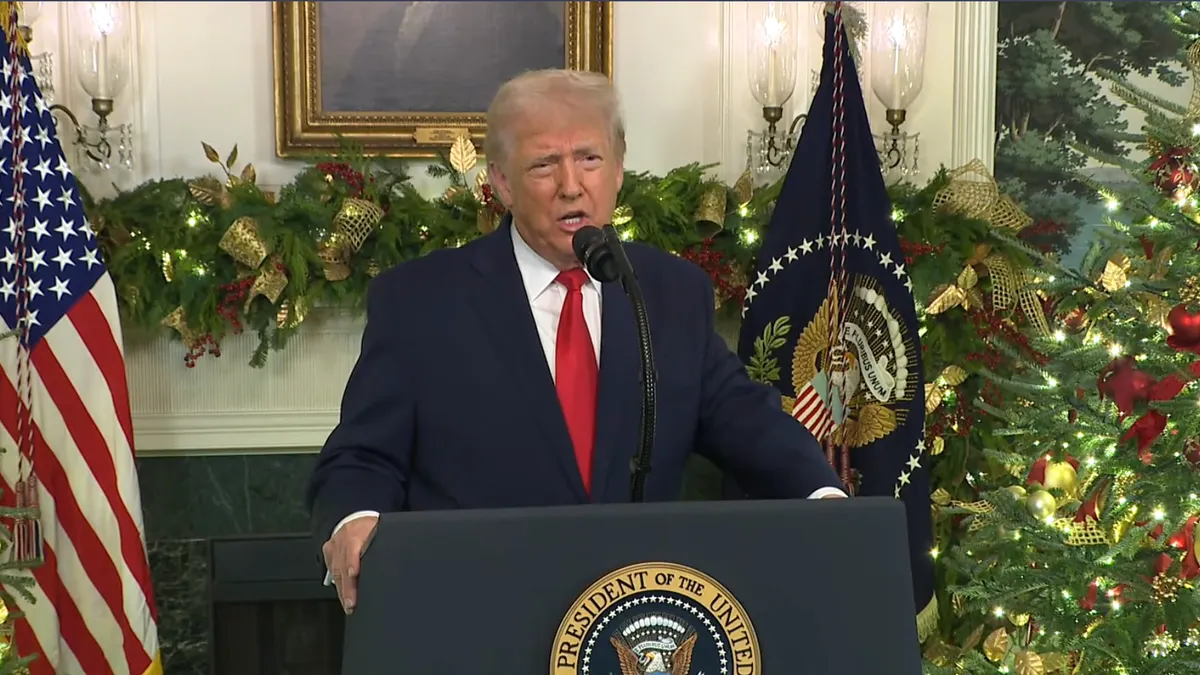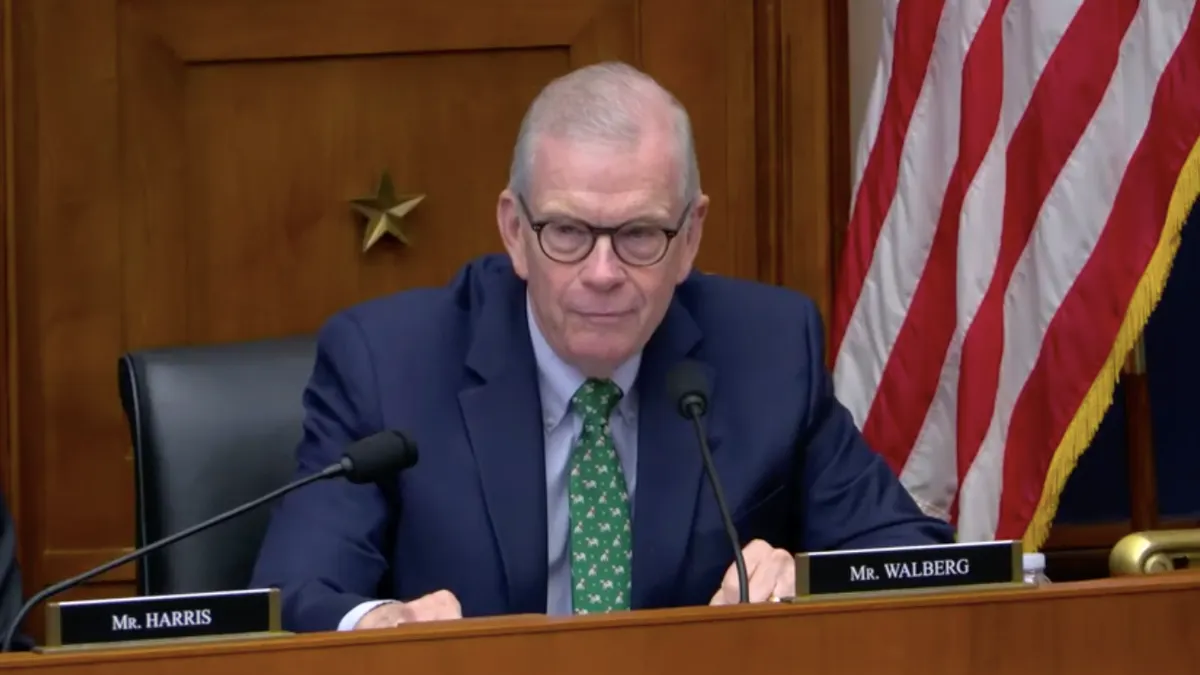Since the escalation of the Israel-Hamas conflict in October 2023, educators nationwide have navigated politically charged waters within their communities and classrooms. While most haven’t taken a stance on the issue, some education leaders have stepped into the fray.
Last week, the executive council for the American Federation of Teachers, the nation's largest teachers union, unanimously passed a resolution calling for a bilateral ceasefire in Gaza and promoting a two-state solution for Israel and Palestine. The organization's Illinois affiliate followed suit a day later, and then AFT's Texas chapter adopted the resolution this week.
Individual school districts have considered similar positions. Michigan's Ann Arbor Public Schools, which serves a number of Jewish and Arab students, passed a resolution last month that called for a bilateral ceasefire and urged educators to discuss the conflict with their students.
"Understanding its limited role in international affairs, [the school board] expresses its support for seeking peaceful resolutions to conflicts wherever they may occur and for emphasizing the importance of protecting human lives and the dignity of all people," the Ann Arbor Public Schools resolution states.
Educators backing resolutions like the one adopted in Ann Arbor say the decades-long friction between Israel and Gaza has reached into their local communities.
"The realities of what is happening now are impacting our community, which includes many Muslims, Arabs, Palestinians, Israelis and Jews in Ann Arbor," said Rima Mohammad, a Palestinian school board member who backed the ceasefire resolution, in an email. Mohammad said residents and school community members have expressed fear for their safety and mental health when they speak out and.
The leaders of the AFT expressed a similar reason.
"Now remember, a lot of our members are descendants of slaves and descendants of immigrants. And so there's a very intense sense of … coming to America from a different place," said AFT President Randi Weingarten, who noted she is Jewish and has roots in Israel. "And what happened to people in those other places is really important."
Prior to adopting the resolution, Weingarten said her organization heard from members with roots on both sides of the conflict and added that the resolution reflects those discussions.
This is not the first time AFT has taken a stand on an international conflict. In 2022, for instance, it adopted a resolution expressing solidarity with Ukraine in its war against Russia.
Becky Pringle, president of the National Education Association, another prominent teachers union, in December 2023 also called for a ceasefire in the Israel-Hamas conflict.
Some districts urge neutrality
The education community, however, is split on how to approach the faraway conflict at home.
On one hand, prominent districts like New York City Public Schools have warned employees to keep their political beliefs separate from their jobs as educators.
In Oakland, California, the school board was set to introduce a resolution calling for a ceasefire in December but then didn’t.
A month before the expected board vote, Oakland Unified School District Superintendent Kyla Johnson-Trammell said in a statement she "recognizes the complex and polarizing nature of this longstanding conflict" and was committed to "providing balanced and historically accurate resources" to the community.
The statement echoed sentiments expressed in October by Sondra Aguilera, the district's chief academic officer, who added, "It's unfortunate that, at times, students are directed how to think about political issues by adults at their schools."
But teachers unions sometimes disagree with taking a neutral approach or staying silent.
"I think in this case, educators have a moral imperative to not sit on the sidelines as young people are being killed, maimed and left homeless en masse, in violation of international norms, in our names," said Jackson Potter, vice president of Chicago Teachers Union, an AFT affiliate.
CTU passed a resolution in November calling for a ceasefire. Potter says some Chicago teachers are afraid to speak out about or support ideals expressed in that resolution.
"With such a polarized political environment, teachers teaching the truth or supporting student voice can be doxed and attacked in ways that cause permanent reputational damage and put their employment in jeopardy," he said.
Weingarten also said she anticipates some K-12 teachers might eventually lose their jobs or be disciplined for expressing their views on the issue.
Resolutions spark pushback and fears
While educators and districts calling for a ceasefire cite a desire to make their diverse community members feel safe and recognized, some Jewish and pro-Israel community members have expressed feeling the opposite.
In Oakland, the local teachers union passed a ceasefire resolution in October and posted information about it in a social media post that it later retracted.
The Anti-Defamation League, in a letter to OUSD, said the teachers union embraced "an offensive narrative" that would "isolate and target" Jewish students, families and teachers.
"It is our understanding that the language of the social media posts has since disappeared and/or been updated," the ADL, a civil rights organization advocating against antisemitism, said in the Oct. 30 letter. "However, the pain, fear, and concern caused by the original statement is still reverberating in the community."
Mohammad, who pushed for the ceasefire resolution in Ann Arbor, said plans should be in place to address negative emotions related to the conflict.
"We need to address how this ongoing conflict abroad is impacting our students' and families' mental health," said Mohammad, who is also advocating to provide teachers professional development, training and balanced instructional resources. "We need to address how this ongoing conflict abroad is impacting how teachers can support students and families that are struggling."
Since the escalation of the conflict in October 2023, schools have reported a rise in anti-semitic and Islamophobic incidents nationwide.The U.S. Department of Education stepped in shortly after, calling the increase "alarming" and warning that districts must prevent discrimination against Muslim, Jewish, Israeli and Palestinian students or risk federal investigations.
The Council on American-Islamic Relations, the nation's largest Muslim civil rights advocacy organization, said it recorded a 216% increase compared to last year in requests for help and reports of bias, including from public school students, in a little over a month following the conflict's escalation.
The Anti-Defamation League marked a 337% year-over-year increase in the two-month period following the conflict's escalation.




















